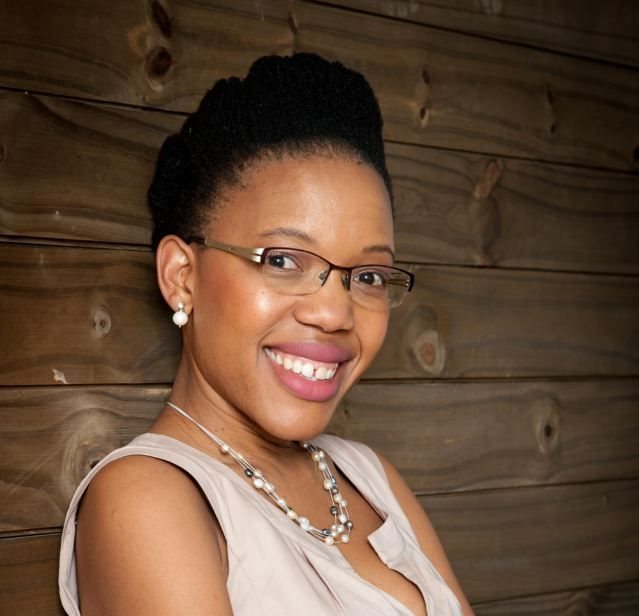Vodacom's managing executive for group strategy and innovation, Mamello Selamolela, is a warrior in the war that is being waged against women in South Africa. She's a fighter because she is not silent about the ongoing turmoil in our country for women and is aware of what needs to be done to curb the mayhem. Selamolela's advocacy for women's rights directly translates to her job, where she proactively empowers females.

Mamello Selamolela
We recently caught up with Selamolela to find out more about herself, Vodacom's role in empowering women in the tech sector, and what it takes to reach the top of the telecoms sector.
Tell us about yourself and your career journey...
As a Black child growing up in South Africa in the 1980s, my parents were determined that I would not be exposed to apartheid’s Bantu education system. At that time, church-run independent schools were the only other education option for Black children, so we relocated to the East Rand and my parents sacrificed everything to afford to send me to St Columba’s School in Benoni. This gave me a solid foundation in accessing learning opportunities and supported my sense of intellectual curiosity, which has significantly shaped my career.
After completing my Master’s Degree in Economics at the University of Cape Town, I joined a consulting firm - McKinsey and Company - as a business analyst. This gave me exposure to multiple industries and a wide range of business functions, from strategy to operations. The firm then provided me with an opportunity to study for an MBA at London Business School.
After about three and a half years in the UK, my husband and I returned to South Africa where I continued to work at McKinsey in an engagement manager role, consulting with various African companies on relevant issues to the continent, such as strategy, operations, and organisational effectiveness in diverse industries including education, healthcare, energy and logistics.
What prompted you to enter the telecoms sector in 2015?
Having worked across various sectors with a diverse range of companies in a consulting role, I wanted to focus on one industry, where I could build a deeper level of expertise and experience. Importantly, I wanted to work in an industry that had an impact beyond its commercial bottom line and made a tangible and lasting impact on society. I had no significant experience in the telecoms sector, but I was intrigued by the power of mobile technology to transform lives and contribute to sustainable socioeconomic development, especially in Africa.
I was working for another mobile network operator when, in 2016, Vodacom approached me to head up its group strategy and shape Vodacom’s transformation into a digital company. It took some convincing, but group CEO Shameel Joosub was persuasive, and I was excited at the prospect of playing a part in defining Vodacom’s future at a time when new innovations in mobile technology, such as OTT [over-the-top media service] and digital payments, were changing the future of the industry.
I have had an incredible five and a half years at Vodacom, including two and a half years as managing executive of central region, where I worked with an incredible team to use the power of technology to transform lives, businesses and public sector organisations in Free State and Northern Cape. I am now the managing executive for Vodacom Group Strategy and Innovation, working with all our markets across the African footprint to deliver on our Vision 2025 strategy.
What do you enjoy most about working in the tech field as a woman?
Being a woman in a leadership role means I am able to bring a different voice and perspective into the boardroom, allowing for more balanced dialogue and decision-making. Working in a traditionally male-dominated industry, I have both an obligation and an opportunity to be a part of other women’s success in the organisation. Even though there are still too few women in tech and especially in senior leadership roles, it’s been amazing to see that number grow and to have more role models emerge for younger women and girls to aspire to.
It has also been rewarding to see the impact of our technology on empowering other women, which has benefits for greater society as a whole. For example, by providing digital solutions to entrepreneurs and to female farmers, we give them access to tools that boost their productivity and financial inclusion, which in turn benefits their families, their communities and the socioeconomic development of our country and continent.
What sparked your passion for the development and success of young South African women?
My parents did a fantastic job in very trying circumstances. I had the best education but even so, I didn’t always have access to networks, input and advice on how to really navigate the world of work. There are a lot of ground-breakers like me who have no frame of reference when they start careers. There are rules of engagement, especially in a corporate environment, which are not transparent, and a poor understanding of how businesses and corporates actually function can put young people at risk of not being able to progress and reach their potential.
Fortunately, I have been blessed with incredible mentors, sponsors, experiences, opportunities and wisdom in my own journey, and I want to share what I and other ‘ground-breakers’ have learned in the trenches, to hopefully equip, educate and empower others for their journeys.
How is Vodacom supporting and empowering women in the telecoms industry?
Female representation remains a challenge for our business and the broader telco sector, which is why Vodacom supports gender empowerment initiatives both in and outside the organisation.
We have to start at the beginning, by encouraging and empowering young women to aspire to careers in tech. One of these initiatives is Vodacom’s CodeLikeAGirl Programme, initiated in 2017, which is aimed at girls aged between 14 and 18. The girls learn how to code and develop soft skills to stimulate their interest in science, technology, engineering, and mathematics (STEM) careers. More than just giving the girls exposure to digital skills, the programme helps instil confidence in working with technology, as well as providing a platform to engage with and inspire other girls interested in STEM, and to meet women in tech who serve as powerful role models.
I am also particularly proud of Vodacom’s Bursary programme. As a bursary beneficiary myself, I know the impact of this type of support, especially for young women. Every year, Vodacom South Africa provides funding for students from disadvantaged communities, giving them an opportunity to pursue qualifications in STEM disciplines and helping to address the skills shortage in South Africa. This past financial year we awarded bursaries to 80 full-time students, with approximately 60% going to female recipients.
In addition to increasing representation, we need to help women to advance to senior levels of leadership and impact. Within our own organisation, we are strongly focused on building future female leaders. We have scaled our Women’s Network Forum, which aims to use various development programmes to advance women to senior and top management levels. To promote the success of women in the workplace, Vodacom also focuses on equal pay, supporting work-life balance, and striving for gender balance across all levels and areas of the business.
Why do you support women’s empowerment and gender equality?
I really wish we lived in a world where women’s empowerment and gender equality were no longer challenges that require specific attention. I wish we could say that we had fulfilled the dreams of our grandmothers and mothers before us and attained the equality that they fought and sacrificed for. Unfortunately, we have not.
I believe our generation, therefore, has a responsibility to continue the fight for equality. Those of us in leadership have an even greater responsibility to create an environment that will enable and accelerate success for the women who are looking up to us. Our daughters need to live in a world where the concept of ‘male-dominated’ does not exist and where they are free to dream, aspire and achieve on their own terms.
In South Africa specifically, we are living in the middle of a war that has been declared on women and children whose lives are at risk every day through gender-based violence. We, therefore, need to escalate and amplify everything we are doing to empower women and ensure they are equal citizens who have the right to safely enjoy everything this country has to offer and live to their full potential. I’m proud of Vodacom’s commitment to the safety of women through the work we do to end gender-based violence and support survivors across all our markets.
Can you share some personal tips for getting to the top in your industry?
My first piece of advice for young professionals is to understand that the trajectory of your career is established in the first 10 years - it’s incredibly important how you start out on your career path, as that sets you on a course that can be difficult to adjust later on. You need to decide early on what your ambition is, what type of environment you want to work in and who you want to be exposed to in terms of leaders and managers.
My second tip is that simply showing up is not enough to get to the top – if you want more, you have to put in more. You have to be willing to go above and beyond your basics of your role, and outside your comfort zone. By actively seeking access to learning opportunities and engaging with different people in and out of the company, you’re broadening your capabilities and demonstrating to the decision-makers in your organisation and your industry that you are willing and able to do more.
I cannot overstate the importance of embracing a growth mindset and cultivating curiosity. Our industry is fast-paced and evolving at an unprecedented pace. In order to remain relevant and continue to grow, we all need to be deliberate about learning, growth and continuous reinvention. Take every learning opportunity, whether it’s formal classroom training, new on-the-job experiences, or a voracious appetite for reading - learning has to be a life-long pursuit.
Finally, find sponsors. Mentorship is great, but you need sponsors in order to realise your ambitions. No one is self-made. We all need people who are willing to put their capital on the line – social capital, influence capital, intellectual capital, time capital and even financial capital – in order to invest in your success.
What words of inspiration do you have for women in the tech field?
It’s important to understand and believe that you have a seat at the table because you deserve to be there. You have unique strengths, experiences and insights that can contribute to building a more inclusive, innovative industry and society. We need to support each other as women in tech so that we can all maximise our success, attain our highest aspirations and reach the very pinnacle of our chosen professions.














































